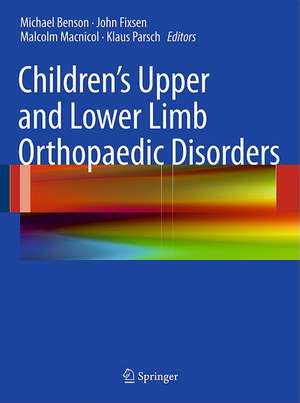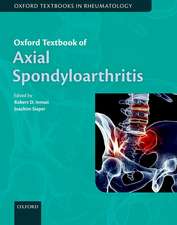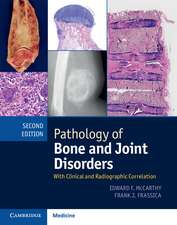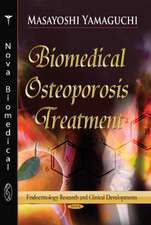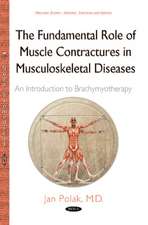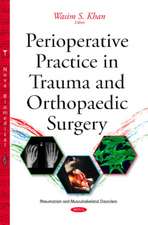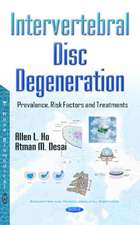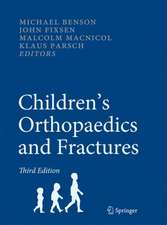Children's Upper and Lower Limb Orthopaedic Disorders
Editat de Michael K. D. Benson, Klaus Parsch, Malcolm Macnicol, John Fixsenen Limba Engleză Paperback – 10 iun 2011
Preț: 376.57 lei
Preț vechi: 396.40 lei
-5% Nou
72.06€ • 75.42$ • 59.97£
Carte tipărită la comandă
Livrare economică 31 martie-14 aprilie
Specificații
ISBN-10: 0857295608
Pagini: 244
Ilustrații: XI, 231 p. 233 illus., 79 illus. in color.
Dimensiuni: 210 x 279 x 13 mm
Greutate: 0.61 kg
Ediția:2011
Editura: SPRINGER LONDON
Colecția Springer
Locul publicării:London, United Kingdom
Public țintă
Professional/practitionerCuprins
1. Developmental Anomalies of the Hand 2. The Shoulder and Elbow 3. Brachial Plexus Injuries Peripheral Nerve Injuries 4. Management of the Injury 5. Birth lesions of the brachial plexus Peripheral nerve injuries6. Leg Deformity and Length Discrepancy7. Classification and Management of Lower Limb Reduction Anomalies 8. Leg Length Inequality 9. Developmental Dysplasia of the Hip 10. Legg–Calvé–Perthes Disease 11. Slipped Capital Femoral Epiphysis 12. The Knee 13. The Foot 14. The Clubfoot: Congenital Talipes Equinovarus 15. Pes Cavus 16. Congenital Vertical Talus (Congenital Convex Pes Valgus)
Recenzii
“Children's Upper and Lower Limb Orthopaedic Disorders … cover general principles of pediatric orthopedic disease, neuromuscular disorders, and fractures. … the text is well written and easily comprehended. Classic as well as contemporary articles are referenced to provide more in-depth information on the described conditions and operative techniques. The index is well cross-referenced, allowing easy access to major topics. … Residents as well as practicing orthopedic surgeons … will find this a concise and reliable source for the current practice of pediatric orthopedics.” (Clifford L. Craig, Journal of the American Medical Association, Vol. 307 (4), January, 2012)
Textul de pe ultima copertă
Children’s upper and lower limb orthopaedic disorders has been written to give orthopaedic practitioners an easily accessible and concise description of regional disease and conditions encountered in the practice of pediatric orthopaedic surgery.
The upper limb chapters describe fetal development and how this may go wrong. As always, function dominates our management plans although cosmetic considerations must be borne in mind. Perinatal brachial plexus injury is analyzed and a plea made for early recognition and reconstruction of both plexus lesions and peripheral nerve injuries. The lower limb chapters consider limb deficiency and deformity and how best we should manage them. Those prominent afflictions of the child’s hip - dysplasia, Perthes’ disease and epiphyseal slipping - are fully discussed. Chapters on the common conditions affecting the knee, foot and ankle complete the book.
Caracteristici
Concise format.
State-of-the-art information on pediatric orthopaedics.
Descriere
Having considered the more generalised neuromuscular and skeletal problems of childhood in the previous two books, we concentrate in this book on regional disorders. The upper limb chapters describe foetal development and how this may go wrong. As always, function dominates our management plans although cosmetic considerations must be borne in mind. Perinatal brachial plexus injury is analysed and a plea made for early recognition and reconstruction of both plexus lesions and peripheral nerve injuries. The lower limb chapters consider limb deficiency and deformity and how best we should manage them. Those prominent afflictions of the child’s hip - dysplasia, Perthes’ disease and epiphyseal slipping - are fully discussed. Chapters on the common conditions affecting the knee, foot and ankle complete this section.
